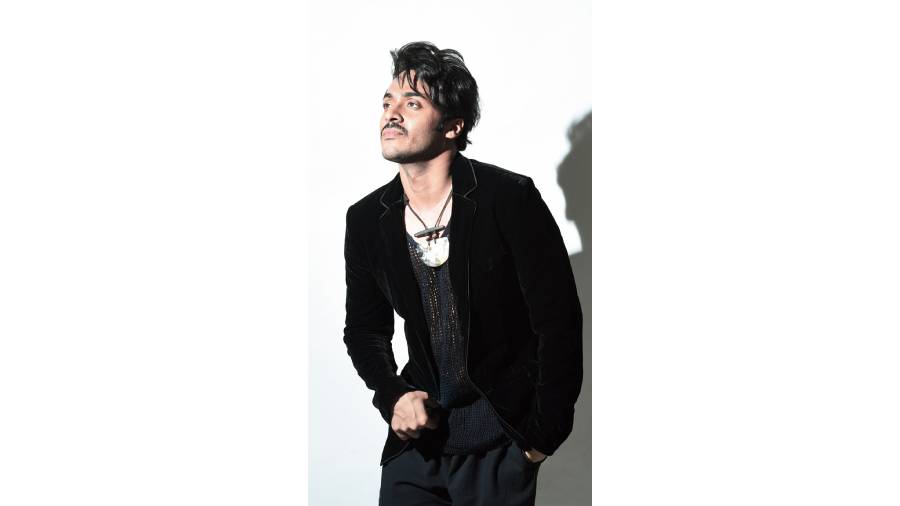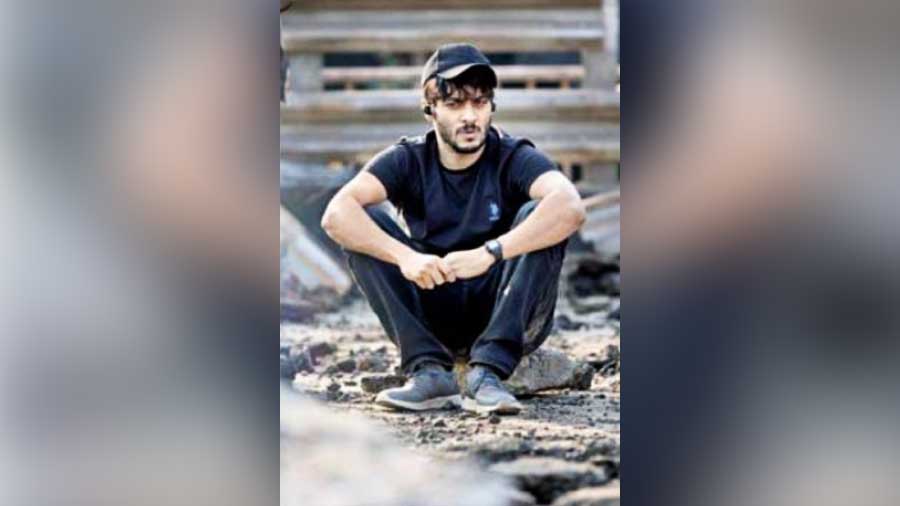After scoring a double century on his Bollywood debut — we are talking about the 2019 blockbuster Kabir Singh, that breached the Rs 200-crore mark at the box office, and had him play the pivotal part of the eponymous protagonist’s (Shahid Kapoor) best friend — Kolkata boy Soham Majumdar is once again raking in the praise for Dhamaka.
The Ram Madhvani-directed thriller on Netflix, that stars Kartik Aaryan in the central role, has Soham in the part of the ‘antagonist’ Anand Mhata, a helpless man compelled to take the law in his own hands when he and his family are denied justice. The Telegraph caught up with Soham — who calls Golf Green home when he is in Kolkata — for a chat on his latest outing.
You are, in a way, the surprise package of Dhamaka. Your voice is heard throughout the film, even though you make an appearance only towards the end. What’s the response been like so far?
I think a lot of people are surprised by my appearance in Dhamaka because I wasn’t a part of any pre-release promotions for the film. I was completely kept as a surprise by the Netflix team.
After Kabir Singh, I didn’t want to bracket myself as the next best friend in Bollywood! (Laughs) I don’t want to be stereotyped in any way. I am not saying I won’t play such roles again, but the part also needs to be as well crafted and designed as it was in Kabir Singh, or for that matter how it was in Sanju. Even in Sholay, Jai and Veeru were equal. I was patient enough to say ‘yes’ to Dhamaka, and the universe also conspired in a way for me to get this part.
People are mostly talking about my voice because that’s what you get to hear throughout the film. A standout feedback that remains etched in my mind is that someone told me that I became ‘the voice of the voiceless’. That really stuck with me. Someone else messaged saying, ‘Soham Majumdar, we heard you’. Then, of course, is the general response of how my voice captivated viewers throughout.
How did Dhamaka happen?
I had to audition for the part, of course. But after Kabir Singh, Ram Madhvani and Karan Johar were the film-makers who texted me directly. I met both of them. But when I met Ram Madhvani, Dhamaka was possibly not even conceived as an idea. When we met, he told me that we would work together... and that was that. Then suddenly, many days later, casting director Abhimanyu Ray approached me for the part. I was told about the original film (The Terror Live) and also shown it. Since this was during the pandemic, I sent in a self-tape for the audition. And then I was told that I had got the part.

Sourced by the correspondent
Ram Madhvani has an unconventional style of film-making. What was it like for you on set and what have your biggest learnings from this experience been?
For my character, I had to get a little bit of a Bundelkhandi accent. Ram sir is someone who is very collaborative. He’s never like, ‘No you have to do it this way’. With him, it’s more like, ‘What can you bring to the table?’ It’s incredible to work with a director like him. Despite his age, he’s the youngest dude I have ever met. While making this film, I felt I had gone back to my theatre days. Ram sir shoots in a very unique way... he’s called it the 360-degree approach to shooting. When he shoots, everything is live and there are multiple cameras, and you just, as an actor, just have to do your thing.
In a conventional shoot, things are moved around. Ram sir does not even move a single piece of furniture to take a shot. For him, even a chair has an emotional continuity of its own. If, while doing a shot, an actor moves a chair, then Ram sir and the camera team will get together to plan how to build the next shot around it. This is something that is completely new.
My role, to be honest, could have easily been dubbed. But I was present there on all the shoot days, in full costume. They had made a set-up for me on set, so that what happened between me and Kartik felt like communication and not acting-acting. The talkback that happens in a newsroom... that was real in this film, it wasn’t just a prop. The coffee machine on set was real. Everything was operational, everything was real. We even had a running joke on set that we could perhaps even go live with a radio show from that set! (Laughs)
Ram sir divided the script into chapters. Every chapter was about 10-15 pages and we would go for those 10-15 pages together. This was a novel process for most of us. Even though it wasn’t shown in most of the film, I would wear my costume and sit on set every day so that when I finally showed up towards the end, my clothes would be creased. So it was the little things that we paid a lot of attention to.
All of them — Kartik, Amruta maam (Subhash), Mrunal (Thakur) are such generous co-actors. We had an acting coach in the form of Vikas Kumar, who also acts in the film (as Praveen Kamath). I am also doing another film with Mrunal called Pippa.
How are you looking at leveraging this?
The good thing is that Bombay has a very fair process of auditioning and selection, as well. After Dhamaka, I am being offered interesting parts. Even if some of them are antagonist parts, they are good parts. In both Kabir Singh and Dhamaka I didn’t play a Bengali in a Hindi film. I wish to break the stereotypes about a Calcutta actor coming to Bombay... I want to be a national actor. Whether I do a Hindi film or a Bengali film, that doesn’t matter.
Apart from Pippa (that also stars Ishaan Khatter), I am doing an independent film called Dukaan that marks the directorial debut of writers Siddharth and Garima who also wrote Kabir Singh. The film deals with surrogacy and it’s a beautiful film.
